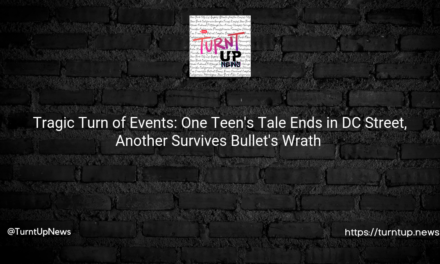🚨 Tony Timpa’s Case: Policeman’s Knee Meets Dallas Civil Jury! 😱👮♂️⚖️
TL;DR:
The Tony Timpa saga sees new life as a civil jury will dive into the circumstances surrounding his tragic demise in 2016. Known as the man who dialed 911 for help, only to end up dead in police custody, Timpa’s case has sparked controversy around police practices. With Dallas officers pinning him down, and a video capturing the painful moments leading to his death, the family’s quest for justice has ignited a heated debate. 📞😔💔
Tony Timpa’s family has been in a painful wait for justice since that fateful day in August 2016. But is justice just about punishing the wrongdoers? Or should it also include reforming the system that allowed this tragedy to unfold?
Timpa was suffering from a mental illness when he made that emergency call for help. Instead of the help he needed, he was pinned facedown by officers, handcuffed and mocked as he screamed for assistance. Disturbingly, this act of cruelty was not hidden in some dark alleyway, but on full display, recorded in body-camera footage that paints a chilling picture. 😓🚓📹
Tony’s mother, Vicki Timpa, has been at the forefront of this fight, battling her nightmares and pushing for justice for her son. It’s not just about her son, she implies, but about countless others who may find themselves in a similar situation. 🥺👩👦⚔️
Though Tony’s cause of death was ruled as a homicide, the officers involved in the incident have yet to face criminal charges. The city of Dallas has remained firm in its stance, representing the officers and arguing that the force used was necessary to gain control. Yet, a part of us can’t help but ask, necessary for what? Control over a distressed individual who was already handcuffed and face down?
As we dig deeper into the layers of this case, we find the concept of qualified immunity — a legal shield that protects officers from being held accountable for constitutional violations in certain circumstances. This doctrine, however, seems to be on thin ice after it faced severe backlash in the wake of George Floyd’s death in 2020.
Vicki’s son, Kolton, now 14, has shown remarkable courage amidst this turmoil. Not only is he expected to be present at the trial, but he also wants to understand why the officers weren’t held accountable for his father’s death. Can there be a more heart-rending reminder of the repercussions of this case? A child’s quest for answers about his father’s untimely death. 😔👦🏼💔
So, as the civil trial kicks off, we are left to ponder some profound questions: How should law enforcement change to prevent such incidents? Can a mother’s nightmare end with a lawsuit victory? Is justice just about punishment, or should it also include systemic reform? And, most importantly, are we ready to address these pressing issues head-on?
What do you think? Is this lawsuit about one man’s tragic end, or is it about all of us, our society, and the police forces that serve us? And, in the end, can there be true justice without significant changes in how we approach law enforcement and mental illness? 🤔⚖️🌐





